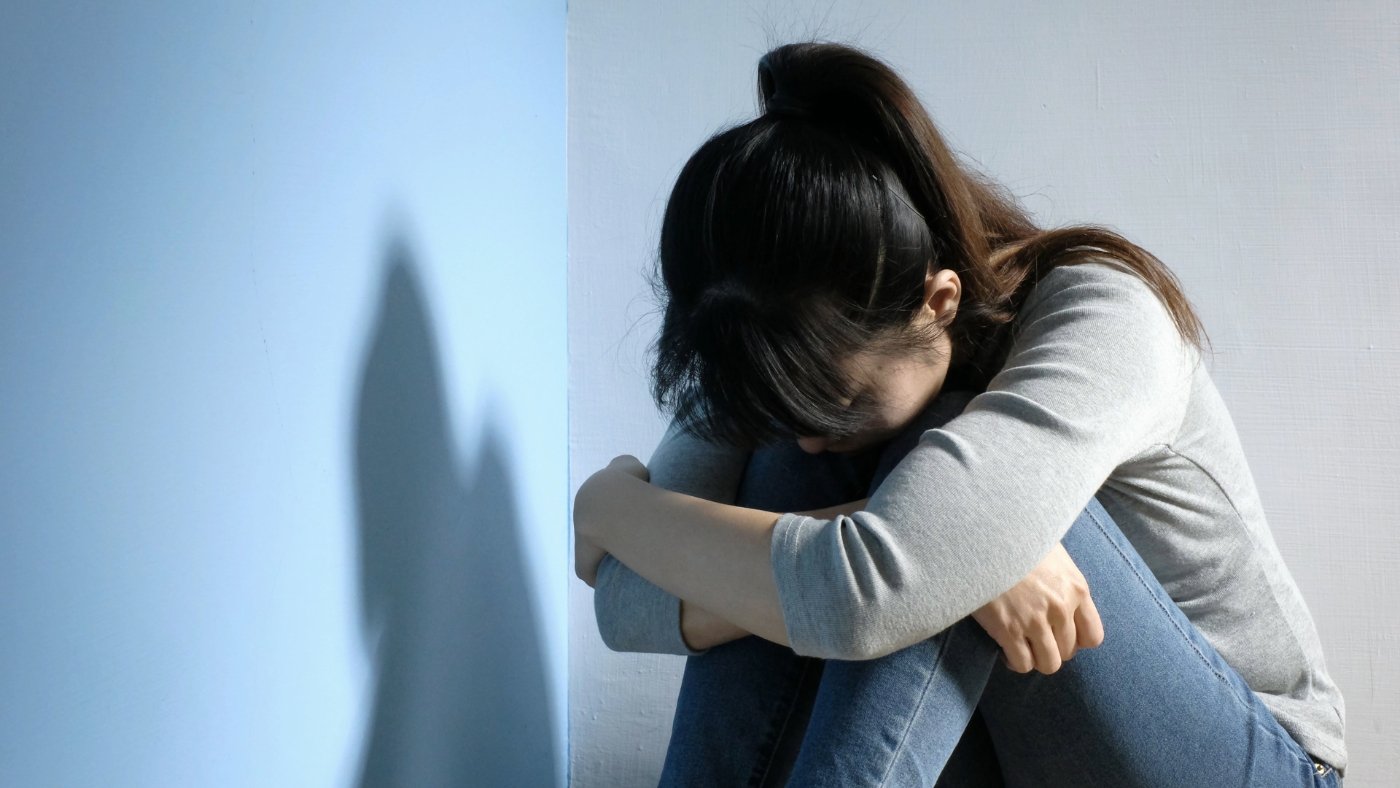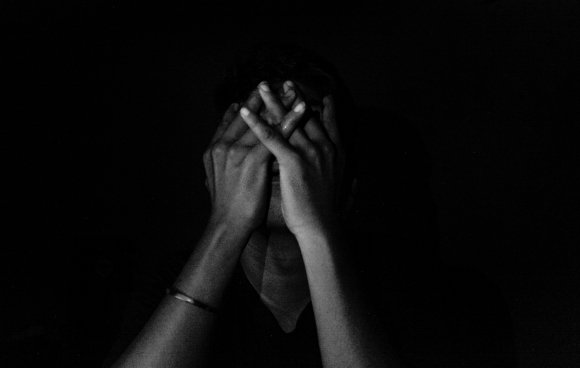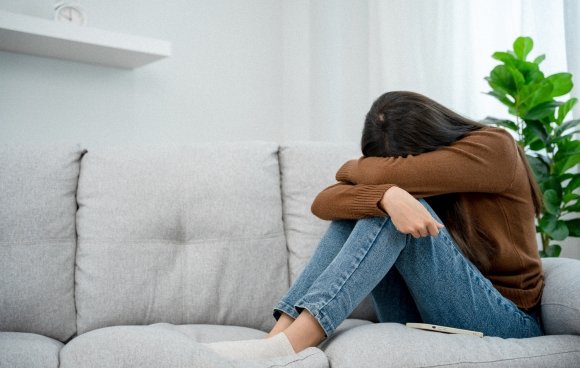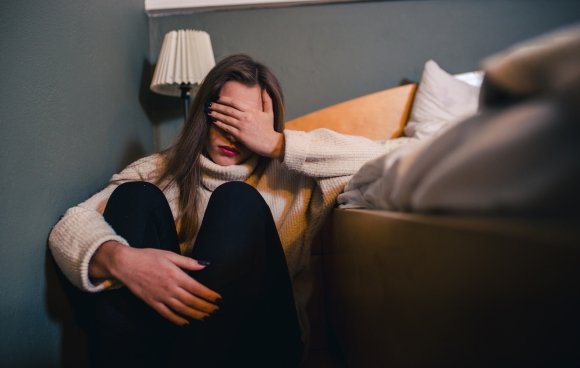Kaip Sustiprinti Širdį: Kardiologų Patikrinti Metodai Be Vaistų
Kasmet pasaulyje nuo širdies ir kraujagyslių ligų miršta apie 17 milijonų žmonių, ir šios ligos išlieka pagrindinė lietuvių mirties priežastis. Tačiau gera žinia ta, kad…

Depression can damage a person's relationships, make work very difficult and harm health, and in severe cases can lead to suicide. In fact, depression causes almost 40,000 suicides every year in Lithuania.
It can affect adults, teenagers and children. Therefore, the question is what is depression and what causes it, as well as types of depression, treatment, etc.

Depression is classified as a mood disorder. It can be described as feelings of sadness, loss or anger that interfere with a person's daily activities.
Although depression and grief share certain characteristics, depression is different from grieving the loss of a loved one or grief following a traumatic life event. Depression usually involves self-loathing or loss of self-esteem, while grief usually does not.
During grief, positive emotions and happy memories of the deceased usually accompany feelings of emotional pain. In major depressive disorder, feelings of sadness are constant.
People experience depression in different ways. This can interfere with your daily work, resulting in lost time and reduced productivity. It can also affect relationships and some chronic health conditions.
Conditions that can be made worse by depression include:
It is important to realize that sometimes feeling down is a normal part of life. Sad and sad events happen to everyone. But if you regularly feel down or sad, you may be dealing with depression.
Depression is considered a serious medical condition that can worsen without proper treatment.
Depression can be more than just being constantly sad or depressed.
Major depression can cause a variety of symptoms. Some affect your mood and some affect your body. Symptoms may also persist or come and go.
Not everyone with depression will experience the same symptoms. Symptoms can vary in severity, frequency, and duration.
If you experience some of the following signs and symptoms of depression almost every day for at least 2 weeks, you may be depressed:
Symptoms of depression can manifest differently in men, women, teenagers and children.
Men may experience symptoms related to:
Women may experience symptoms related to:
Children may experience symptoms related to:

There are several possible causes of depression. They can range from biological to indirect.
The most common reasons are:
Brain chemistry. There may be a chemical imbalance in the parts of the brain that control mood, thoughts, sleep, appetite, and behavior in depressed people.
Hormone levels. Changes in the female hormones estrogen and progesterone at various times, such as during the menstrual cycle, after childbirth, perimenopause or menopause, can increase the risk of depression.
Family history. You are at greater risk of developing depression if you have a family history of depression or other mood disorders.
Early childhood trauma. Certain events affect your body's response to fear and stressful situations.
Brain structure. You are at greater risk of depression if your brain's frontal lobe is less active. However, researchers do not know whether this happens before or after the onset of depressive symptoms.
Medical conditions. Certain conditions can increase your risk, such as chronic disease, insomnia, chronic pain, Parkinson's disease, stroke, heart attack, and cancer.
Substance use. A history of substance or alcohol abuse may affect your risk.
Pain. People who experience long-term emotional or chronic physical pain are significantly more likely to develop depression.
Risk factors for depression can be biochemical, medical, social, genetic, or indirect. Common risk factors include:
Sex. The prevalence of major depression is twice as high among women as among men.
Genetics. If you have a family history of depression, your risk of developing depression increases.
Socioeconomic status. Socioeconomic status, including financial problems and poor social status, can increase the risk of depression.
Certain medications. Certain medications, including some hormonal contraceptives, corticosteroids, and beta-blockers, may be associated with an increased risk of depression.
Vitamin D deficiency. Studies have linked depressive symptoms to low vitamin D levels.
Gender identity. Based on 2018 According to the study, the risk of depression for transgender people is almost 4 times higher than for cisgender people.
Substance abuse. About 21 percent of people with a substance use disorder also experience depression.
Medical diseases. Depression is associated with other chronic medical conditions. People with heart disease are about twice as likely to be depressed as people without heart disease, and up to 1 in 4 people with cancer may also experience depression.

You may manage your symptoms successfully with one form of treatment, or you may find that a combination of treatments works best.
It is common to combine medical treatment with lifestyle therapy, including:
Selective serotonin reuptake inhibitors
SSRIs are the most commonly prescribed antidepressants and generally have few side effects. They treat depression by increasing the availability of the neurotransmitter serotonin in your brain.
SSRIs should not be taken with certain medications, including monoamine oxidase inhibitors (MAOIs) and in some cases thioridazine or Orap (pimozide).
Pregnant women should talk to their doctors about the risks of using SSRIs during pregnancy. You should also be careful if you have angle-closure glaucoma.
Examples of SSRIs include citalopram (Celexa), escitalopram (Lexapro), fluvoxamine (Luvox), paroxetine (Paxil, Paxil XR, Pexeva), and sertraline (Zoloft).
Serotonin and norepinephrine reuptake inhibitors (SNRIs)
SNRIs treat depression by increasing the levels of the neurotransmitters serotonin and norepinephrine in your brain.
SNRIs should not be used with MAOIs. You should be careful if you have liver or kidney problems or angle-closure glaucoma.
Examples of SNRIs include desvenlafaxine (Pristiq, Khedezla), duloxetine (Cymbalta, Irenka), levomilnacipran (Fetzima), and venlafaxine (Effexor XR).
Tricyclic and tetracyclic antidepressants
Tricyclic antidepressants (TCAs) and tetracyclic antidepressants (TECAs) treat depression by increasing the levels of the neurotransmitters serotonin and norepinephrine in your brain.
TCAs can cause more side effects than SSRIs or SNRIs. Do not take TCA or TECA with an MAOI. Use with caution if you have angle-closure glaucoma.
Examples of tricyclic antidepressants include amitriptyline (Elavil), doxepin (Sinequan), imipramine (Tofranil), trimipramine (Surmontil), desipramine (Norpramin), nortriptyline (Pamelor, Aventyl), and protriptyline (Vivactil).
Noradrenaline and dopamine reuptake inhibitors (NDRIs)
These drugs can treat depression by increasing the amount of dopamine and noradrenaline in your brain.
Examples of NDRIs include bupropion (Wellbutrin).
Monoamine oxidase inhibitors (MAOIs)
MAOIs treat depression by increasing the levels of norepinephrine, serotonin, dopamine, and tyramine in your brain.
Because of side effects and safety concerns, MAOIs are not the first choice for treating mental health disorders. They are usually only used if other medications have not helped to treat depression.
Examples of MAOIs include isocarboxazid (Marplan), phenelzine (Nardil), selegiline (Emsam), tranylcypromine (Parnate).
Talking to a therapist can help you learn coping skills. You may also benefit from family or group therapy sessions.
Psychotherapy, also known as 'talk therapy', is when a person talks to a trained therapist to identify factors that are contributing to their mental health condition, such as depression, and learn how to cope with them.
Psychotherapy has been shown to be an effective way to improve symptoms in people with depression and other mental disorders.
Psychotherapy is often used in conjunction with medication. There are many different types of psychotherapy, and some people respond better to one type than another.
In cognitive behavioral therapy (CBT), a therapist will work with you to uncover unhealthy thought patterns and determine how they can lead to harmful behaviors, reactions, and beliefs about yourself.
Your therapist may assign you "homework" where you practice replacing negative thoughts with more positive ones.
Psychodynamic therapy is a form of talk therapy designed to help you better understand and cope with your everyday life. Psychodynamic therapy is based on the idea that your current reality is shaped by your unconscious, childhood experiences.
In this form of therapy, your therapist will help you reflect on and examine your childhood and experiences to help you understand and deal with your life.
Exposure to doses of white light can help regulate mood and improve symptoms of depression. Light therapy is commonly used for seasonal affective disorder, now called seasonal depressive disorder.
Ask your doctor about alternative treatments for depression. Many people choose alternative therapies alongside traditional psychotherapy and medication. Some examples:
Meditation. Stress, anxiety, and anger all lead to depression, but meditation can help change how your brain reacts to these emotions. Research shows that practicing meditation can help improve symptoms of depression and reduce the likelihood of depression relapse.
Acupuncture. Acupuncture is a form of traditional Chinese medicine that can help relieve some symptoms of depression. During acupuncture, the doctor uses needles to stimulate certain areas of the body to treat various ailments. Research shows that acupuncture can improve clinical treatment and be as effective as counseling.

Aim for 30 minutes of physical activity 3-5 days a week. Exercise can increase your body's production of endorphins, hormones that improve your mood.
Drinking alcohol or abusing substances can make you feel better for a while. However, over time, these substances can worsen symptoms of depression and anxiety.
You can also improve your symptoms of depression by taking care of yourself. This includes getting plenty of sleep, eating healthy, avoiding negative people, and doing enjoyable activities.
Sometimes depression doesn't respond to medication. Your healthcare professional may recommend other treatments if your symptoms do not improve.
These options include electroconvulsive therapy (ECT) or repetitive transcranial magnetic stimulation (TMS) to treat depression and improve mood.
Vitamins are important for many body functions. Research shows that two vitamins are particularly helpful in relieving symptoms of depression:
Vitamin B: B-12 and B-6 are vital for brain health. When your B vitamin levels are low, your risk of depression may be higher.
Vitamin D: sometimes called the sunshine vitamin, vitamin D is important for brain, heart and bone health. There may be a link between vitamin D deficiency and depression, but more research is needed.
Many herbs, supplements, and vitamins are said to help relieve symptoms of depression, but most have not been effective in clinical trials.
There is no single test to diagnose depression. However, your health care provider can make a diagnosis based on your symptoms and a psychological evaluation.
In most cases, they will ask a few questions about you:
Because depression can be associated with other health problems, your healthcare professional may also perform a physical exam and order blood work. Sometimes thyroid problems or vitamin D deficiency can cause symptoms of depression.
It is important not to ignore the symptoms of depression. If your mood does not improve or worsens, seek medical attention. Depression is a serious mental health condition that can lead to complications.
If left untreated, complications may occur:
But depression is treatable. You just need to know how to do it.
Depression can be temporary or it can be a long-term challenge. Treatment doesn't always make your depression go away completely.
However, treatment often relieves symptoms. Managing depression symptoms requires finding the right combination of medication and therapy.
If one treatment does not help, consult your health practitioner. They can help you develop a different treatment plan that can help you manage your condition.
How find out which vitamins, minerals or other supplements the most appropriate at the moment? Try it free test "Your Day" ! where you will find out needs of the body and you will get personal recommendation!
Kasmet pasaulyje nuo širdies ir kraujagyslių ligų miršta apie 17 milijonų žmonių, ir šios ligos išlieka pagrindinė lietuvių mirties priežastis. Tačiau gera žinia ta, kad…

Artificial intelligence in medicine has made impressive progress – it has already successfully passed medical licensing exams and can handle internal medicine cases. Even more impressive is that special…
The human heart beats an average of more than 2.5 billion times during a lifetime. This amazing organ works tirelessly to maintain a vital pulse rhythm, the rate of which (pulse rate)…

KIKI Health Zeolitas - Ceolitas, milteliai, 60 g

Trace Minerals Mega Magnesium 400 mg. Liquid with minerals, 118 ml.

KIKI Health Zeolitas - Ceolitas su aktyvuota anglimi, milteliai 60 g.

KIKI Health Zeolitas - Ceolitas, milteliai, 120 g.

SUPER OMEGA-3 - norvegiški žuvų taukai su Omega-3, didelė koncentracija, 100+30 kapsulių
| Cookie | Duration | Description |
|---|---|---|
| cookielawinfo-checkbox-advertisement | 1 year | Šį slapuką nustato GDPR Cookie Consent papildinys. Slapukas naudojamas išsaugoti vartotojo sutikimą dėl slapukų kategorijoje „Analitiniai“. |
| cookielawinfo-checkbox-analytics | 11 mėnesių | Šį slapuką nustato GDPR Cookie Consent papildinys. Slapukas naudojamas išsaugoti vartotojo sutikimą dėl slapukų kategorijoje „Analitiniai“. |
| cookielawinfo-checkbox-functional | 11 mėnesių | Slapukas nustatomas pagal GDPR slapukų sutikimą, kad būtų įrašytas vartotojo sutikimas dėl slapukų kategorijoje „Funkciniai“. |
| cookielawinfo-checkbox-necessary | 11 mėnesių | Šį slapuką nustato GDPR Cookie Consent papildinys. Slapukai naudojami saugoti vartotojo sutikimą dėl slapukų kategorijoje „Būtini“. |
| cookielawinfo-checkbox-others | 11 mėnesių | Šį slapuką nustato GDPR Cookie Consent papildinys. Slapukai naudojami saugoti vartotojo sutikimą dėl slapukų kategorijoje „Kiti“. |
| cookielawinfo-checkbox-performance | 11 mėnesių | Šį slapuką nustato GDPR Cookie Consent papildinys. Slapukai naudojami saugoti vartotojo sutikimą dėl slapukų kategorijoje „Vykdymas“. |
| elementor | never | Šį slapuką naudoja svetainės „WordPress“ tema. Tai leidžia svetainės savininkui realiuoju laiku įdiegti arba keisti svetainės turinį. |
| viewed_cookie_policy | 11 mėnesių | Slapuką nustato GDPR Cookie Consent įskiepis ir jis naudojamas norint išsaugoti, ar vartotojas sutiko, kad būtų naudojami slapukai, ar ne. Jame nesaugomi jokie asmens duomenys. |
| Cookie | Duration | Description |
|---|---|---|
| _ga | 2 metai | _ga slapukas, įdiegtas Google Analytics, apskaičiuoja lankytojų, seansų ir kampanijos duomenis, taip pat seka svetainės naudojimą svetainės analizės ataskaitoje. Slapukas išsaugo informaciją anonimiškai ir priskiria atsitiktinai sugeneruotą skaičių unikaliems lankytojams atpažinti. |
| _ga_JWS80V051Z | 2 metai | Šį slapuką įdiegė Google Analytics. |
| omnisendSessionID | 30 minučių | Šį slapuką nustato teikėjas Omnisend. Šis slapukas naudojamas unikaliam seanso ID nustatyti. Slapukas statistiniais tikslais renka informaciją apie lankytojų elgesį svetainėje. |
| soundestID | sesijos metu | Šį slapuką nustato teikėjas Omnisend. Šis slapukas naudojamas norint nustatyti, ar lankytojas svetainėje yra naujas, ar lankytojas lankėsi anksčiau. |
| Cookie | Duration | Description |
|---|---|---|
| omnisendAnonymousID | 1 year | Šį slapuką nustato teikėjas Omnisend. Šis slapukas naudojamas išsaugoti vartotojo veiksmą svetainėje su unikaliu ID. Slapukas užšifruoja lankytojo duomenis, kad būtų apsaugoti naudotojo duomenys. |
| soundest-views | sesijos metu | Aprašymas negalimas. |
| woocommerce_recently_viewed | sesijos metu | Aprašymas nepasiekiamas. |
